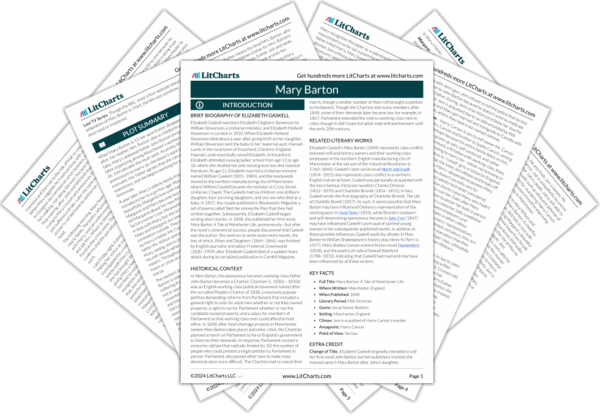Mrs. Wilson blames Mary for Jem’s arrest and calls her a “dirty hussy,” an insult suggesting boldness, flirtatiousness, and even sexual promiscuity. This insult suggests that even though Mary did not engage in premarital sexual activity with anyone or encourage the fight between Jem and Harry in any way, the mere fact of her having flirted with Harry is enough, in Victorian England’s conservative and sexist society, to endanger her reputation in the aftermath of Harry’s murder.
